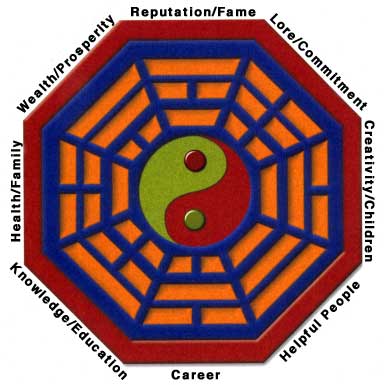Paradise Alley.
Kevin Baker Bibliography
Book Marks
Author Info
--------------------------------------------------------------------------------
"Paradise Alley"
The editor here at MostlyFiction.com asked me to review Kevin Baker's new novel Paradise Alley, because, as she put it, I'm our resident history buff. I think this is a polite way of saying "history geek," but I won't quibble. She can call me "Tubby McWeaselface" for all I care, as long as she keeps sending me books as meaty, thrilling, and epic as this one.
Paradise Alley chronicles the draft riots that shook New York City during the summer of 1863, at the height of the Civil War. It is a huge work, over 650 pages long, although one shouldn't shy away merely because of its bulk. Baker, whose previous works include the critically acclaimed Dreamland, serves up a no-holds-barred dissection of the three-day riot. It is a testament to his skill as a historical researcher and as a novelist that he can maintain the reader's interest for the whole darn story. Baker chooses to tell the story through many points of view, a wise move considering the complexity of the mob violence. The central characters are Billy and Ruth Dove, an interracial couple, hoping to avoid both the riots and Ruth's former lover, "Dangerous" Johnny Dolan. Johnny, one of the most evil characters I have ever encountered, had "saved" Ruth from the potato famine in Ireland, (also rendered in horrific detail) only to bring her to New York as some sort of wife/punching bag. We also get the story of Johnny's sister Deirdre and her soldier husband, Tom, along with the neighborhood prostitute Maddy Boyle. Baker wisely does not attempt to make each character a narrator a la Matthew Kneale's English Passengers, but instead weaves the meticulously researched stories into a far-reaching panorama. Baker cleverly throws a reporter, Herbert Willis Robinson, into the fray, which allows us to see all aspects of the riot. Through Robinson's jaded eye, Baker is able to include many anecdotes that wouldn't make sense in a more traditional narrative.
Having taught history for ten years, I can appreciate the burden Baker undertook in attempting to tell this multifaceted story. It is easy to look at the Civil War as a "good v. evil" campaign. The victorious and righteous Yankees used all its power to smite the slave-holding Confederacy and restored honor and glory to the Union. Reading Paradise Alley reminds us of how very wrong this approach is. Although Baker's sympathies lie with the North, he spares no mercy in showing most of the New Yorkers, and particularly the Irish, to be virulent and violent racists. As a runaway slave, Billy Dove pushes himself to freedom with the mantra "free or not free." While in New York, he finds himself and other black people to be "free and not free." Baker is a master at creating all kinds of tension, domestic, municipal, national, ethnic, political, racial, class, and I'm sure a lot of other types for which I have no label. Baker never allows his audience to become inured to the violence, never condescending into the banality of brutality, forcing us to acknowledge the rioters, the way they look, think, and even smell. The very epic nature of the book forces the reader to empathize with the main characters, although just as he refuses to paint the riot in terms of good and evil, likewise, he never lets any of the characters assume too saintly a mantle.
Baker must have spent years researching this novel and he presents his findings so entertainingly that even the most casual reader will come away having learned something. He gives us rich insight into, among other things, the horrible conditions caused by the Irish potato famine, the life of a skilled slave craftsman, and the just plain dirty conditions of New York City. Here, he has a character introduce the regulars in a bar. Colorful would be an understatement. "This here's One-Armed Charlie, an' Kate Flannery, and Slobbery Jim and Patsy the Barber. An' that's Sadie the Goat, and Jack Rat, who makes his money biting the heads off a rats down at Kit Burns's an' George Leese, also known as Snatchem, who used to be with the Slaughterhouse Gang, but now works the fights as a bloodsucker." By the way, according to the glossary provided by Baker, a bloodsucker is someone who "sucks fighters' fists dry of blood during the bare-knuckle boxing matches of the day." I told you that you'd learn something, didn't I?
It's easy to forget that professional municipal fire departments are a product of the post-Civil War world and Baker uses them as pivotal players in the riot. During the Civil War, New York was protected by rival fire companies, "owned" by various political factions, companies such as the Black Joke, the Old Honey Bee, the Iron Horse, the Man Killer, the Shad Bellies, the Bean Soup, and the Dashing Half Hundred. These companies raced to the scene of the fire because access to the hydrant and thus honor and political patronage belonged to the victor. Who could imagine such a scene, especially after the September 11 tragedy?
Paradise Alley is long and the more squeamish readers (I'm one of them) will find it tough going in spots. But don't let the length scare you off. It's a compelling and important story with a vivid narrative style that's easy to follow. So curl up next to a roaring fire and dig into Paradise Alley. Even if you're not a history geek, you'll enjoy this one or my name's not Tubby McWeaselface. (Reviewed by Shannon Bloomstran 11-12-02)


